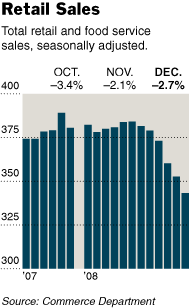 Little over twenty days ago, I wrote about the demise of the Seattle PI. It is looking increasingly certain that the newspaper will not be sold and that the possibility of it maintaining some presence in the Puget Sound region as an online medium is remote.
Little over twenty days ago, I wrote about the demise of the Seattle PI. It is looking increasingly certain that the newspaper will not be sold and that the possibility of it maintaining some presence in the Puget Sound region as an online medium is remote. On Wednesday, the City of Seattle City Council's committee on culture, civil rights, and all else, chaired by Councilman Nick Licata, held a hearing about the state of news media in Seattle. While there was virtually no coverage of the hearing in either newspapers, the internet sphere has been busy Twittering and blogging about the hearing.
Here are my several thoughts now that I have digested the news of the demise of the paper, the reactions from journalists and the comments from public leaders. The more I thought about it, the more I realized I would rather have one quality newspaper than two sort of ok outlets. When I lived back east in the largest city in the nation, I read only one newspaper (ok, I subscribed to a local paper for the local news). Washington, DC essentially has one paper (sorry Washington Times). Los Angeles barely has one paper. Seattle will survive.
But will it's politicians? What struck me in reading about Wednesday's hearing is that the policy makers have well managed relationships with journalists. George H.W. Bush invited members of the media to the living quarters of the White House for intimate dinners when he was president. Alan Greenspan's wife is Andrea Mitchell. The press are friends of the policy makers, and now days when a journalist wants out, he or she goes to work for a politician or a corporate entity they used to report on. Talk about conflicts! And if you want to engage in your own reporting, try to get credentials or press passes. It is a club that is difficult to gain entry. So, it seems the politicians and powerful enjoy the dignified and should I say, gentle relationship between established media and themselves. So what happens when the so-called reporting institutions die and people find creative and inventive ways to spread news?
There is no doubt that the demise of newspapers and the continued erosion of independently owned media outlets is bad for this country. Anytime options are limited when it comes to understanding ourselves, it is not good. The simple fact there are people in our communities who do not use computers much less have access, but who do read newspapers, is an argument for finding a way to keep newspapers in business.
That said, there are a whole slew of new ways of disseminating information by a whole new crew of people. While blogs like this really are written rants or soapboxes and are not "news," there is still a lot of information distributed through this and similar mediums that don't have the same types of conflicts main stream journalist have.
I am a little concerned that local politicians find a need to hold hearings on the demise of a newspaper. That they apparently questioned the "credentials" of a blogger who testified about his wildly successful blog which provides local news of a Seattle neighborhood. In many regards the same business models that have brought down other institutions in this country (read: banks) are bringing down newspapers. It's a free-for-all right now as laid off journalists, newly minted observers and bloggers, and major mainstream media players all try to figure out what will work. And, in the end, I think that is really healthy. Maybe it's time to storm the gates of all the exclusive clubs!






















